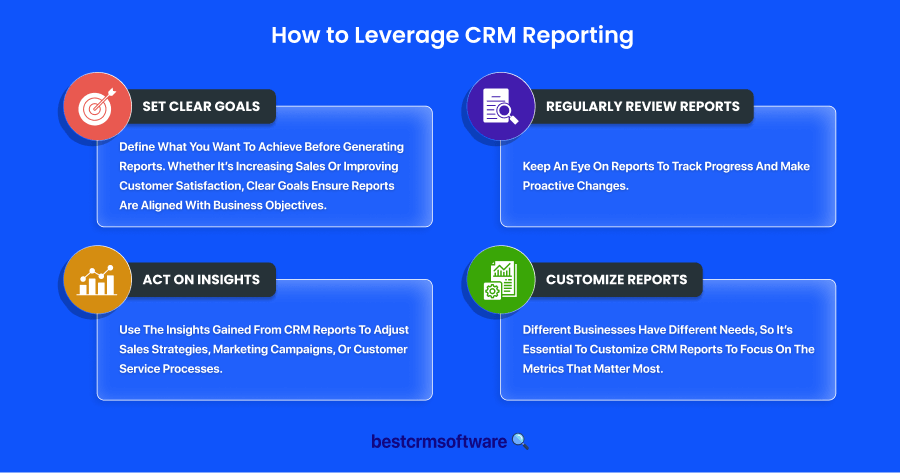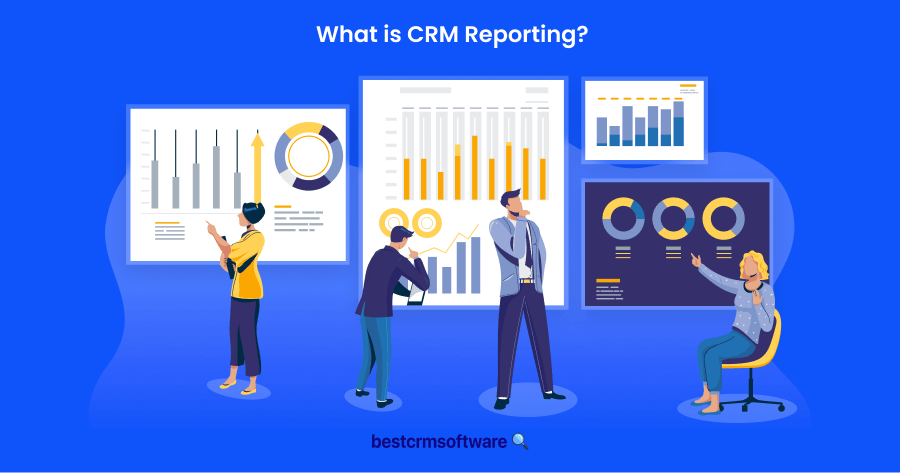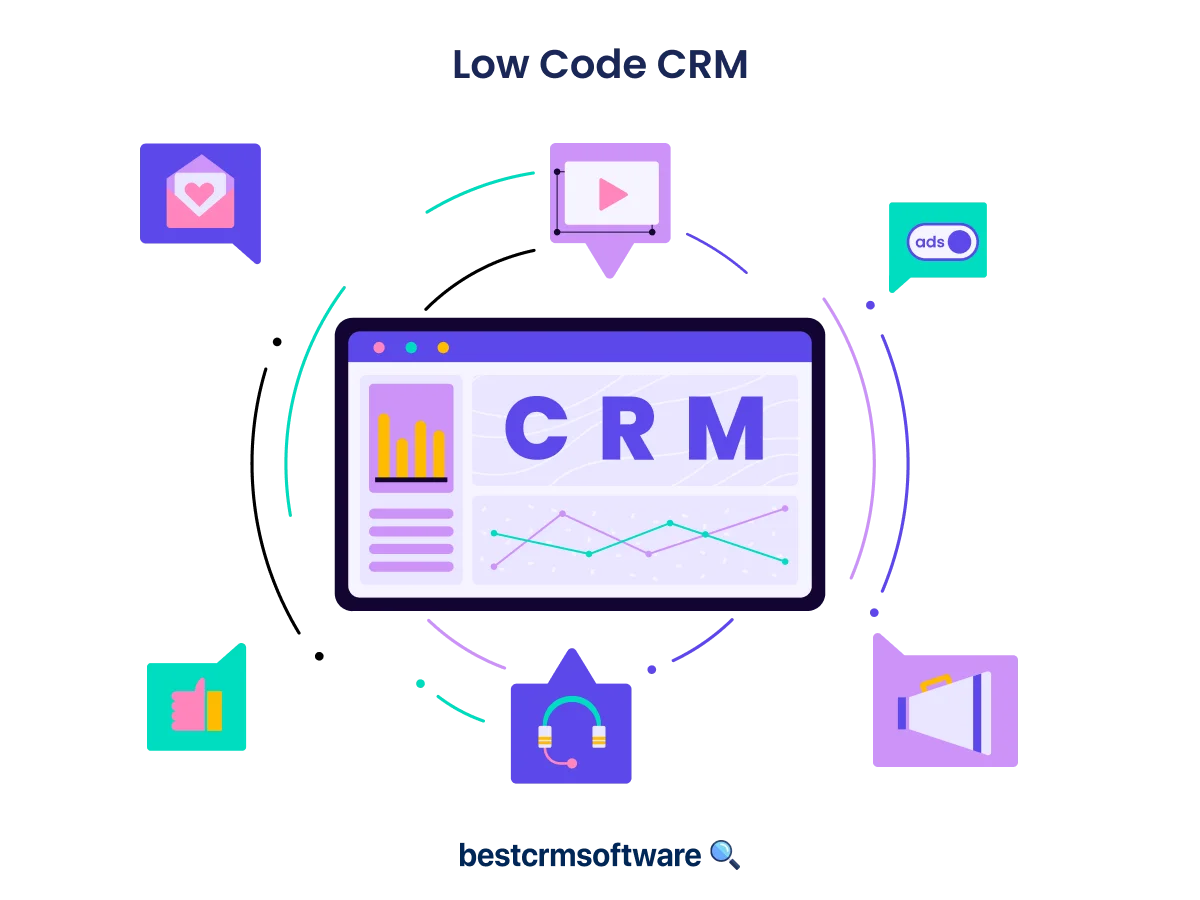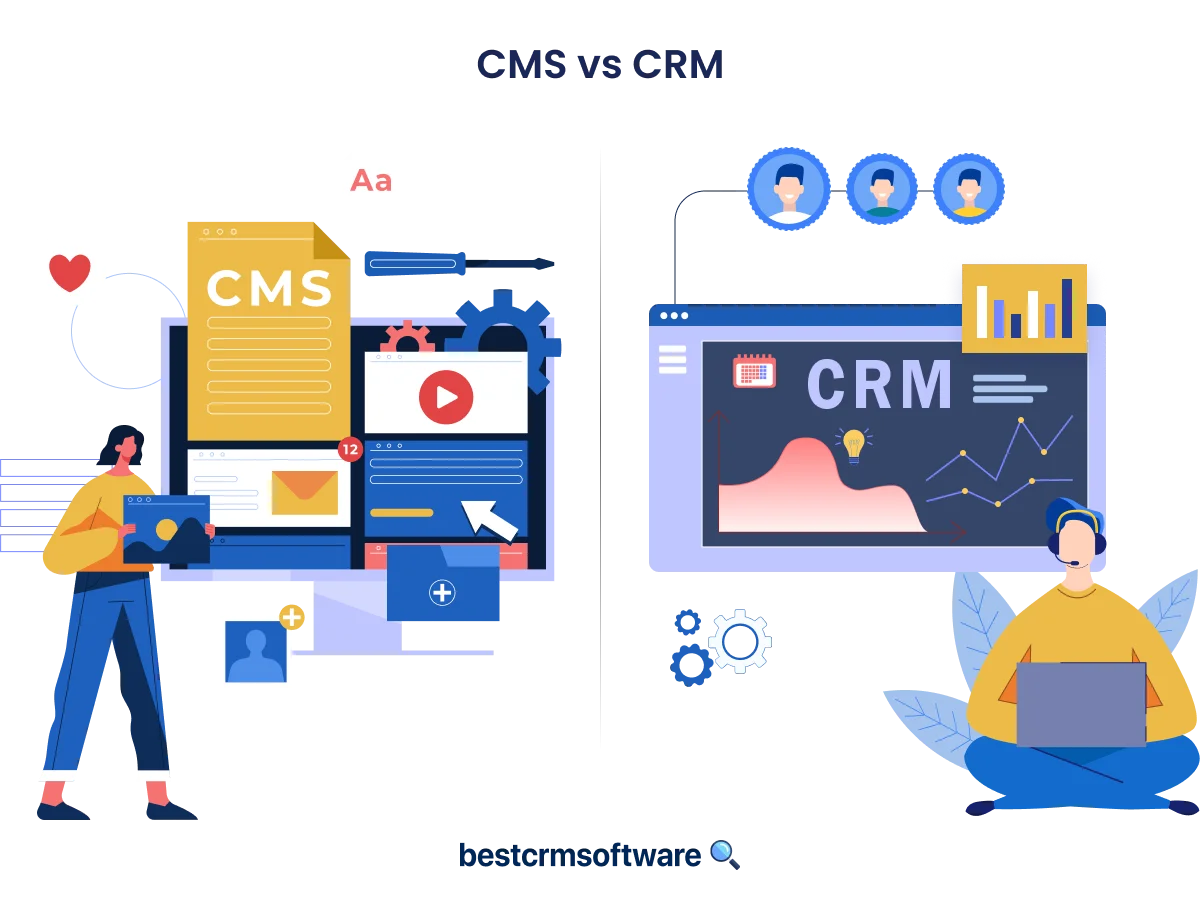
What is CRM Reporting?
Reporting is one of the key advantages of using CRM software. It gives you a clear view of your business and your customers, highlighting areas for improvement and revealing growth opportunities. In this article, we’ll take a closer look at CRM reporting and explore how it can drive success and boost your company’s performance.
A CRM Report for your Business
Customer Relationship Management (CRM) systems are essential tools for businesses to manage customer interactions, streamline sales processes, and improve overall satisfaction. A key feature of any CRM system is its reporting capabilities.
CRM reporting provides crucial insights that allow businesses to make informed decisions, refine strategies, and optimize interactions with customers. But what exactly is CRM reporting, and why is it so important?
Understanding CRM Reporting
At its core, CRM reporting focuses on turning data gathered within a CRM system into actionable insights. This data, often input by employees or sourced from platforms like the company website, can include customer details, purchasing behavior, and other relevant information.
These reports help businesses track various metrics related to sales, marketing, customer service, and performance. CRM systems gather vast amounts of data from customer interactions, such as purchase history, communication logs, and support inquiries.
This data isn’t gathered and stored without purpose. The goal of collecting it is to use it for the company’s advantage. Reporting helps management identify opportunities, areas where costs can be reduced, and other critical insights for decision-making.
CRM reports provide a performance snapshot, highlighting trends, inefficiencies, and future opportunities. This data-driven approach helps businesses make proactive decisions based on real-time information, rather than sticking to the way things have always been done.
Even though it seems logical, many companies fail to fully utilize the potential of their CRM reports. In this article, we aim to guide businesses in maximizing the value of their CRM systems.
Why is CRM Reporting Important?
To provide a clearer understanding of why CRM reporting matters, I’ve outlined the key advantages below.
Improved Decision-Making
CRM reports provide crucial insights, allowing managers to make data-driven decisions. By spotting patterns in customer behavior, sales trends, and marketing performance, businesses can adjust strategies for better results. For example, if conversions drop at a certain stage, companies can investigate and optimize that step to improve outcomes.
Enhanced Customer Insights
CRM systems gather essential data on customer preferences, behavior, and satisfaction. Through CRM reporting and sales forecasts, businesses can better understand their customers, anticipate needs, and tailor their approach to offer more relevant products or services.
Optimized Sales Processes
Sales reports help businesses track performance, evaluate sales pipeline efficiency, and identify top and underperforming reps. This enables managers to allocate resources better, set realistic goals, and refine strategies for revenue growth.
Increased Marketing Effectiveness
CRM reporting gives marketing teams valuable insights into campaign effectiveness. Marketers can measure ROI, track lead generation, and evaluate customer engagement. This information helps improve future campaigns, boosting conversion rates and optimizing marketing budgets.
Better Customer Service
CRM data tracks all customer interactions, enabling service teams to deliver personalized support. Reports reveal complaint trends, common issues, and help resolve problems efficiently, leading to improved customer satisfaction.
Types of CRM Reports

There are several types of CRM reports, each providing unique insights into different areas of a business. Not every report will be necessary for your company, so focus on those that offer the most value. Common CRM reports include:
Sales Reports
- Sales Pipeline Report: Shows the stages of the sales process and how leads are progressing through the funnel.
- Conversion Rate Report: Tracks how many leads turn into paying customers.
- Sales Forecast Report: Predicts future sales and revenue using historical data.
CRM Systems that offer good sales reports: Pipedrive
Customer Reports
- Customer Segmentation Report: Divides customers into groups based on demographics, buying habits, or location.
- Customer Satisfaction Report: Based on customer feedback and surveys, helping businesses understand brand perception.
CRM Systems that offer good Customer reports: Insightly
Marketing Reports
- Campaign Performance Report: Tracks metrics like open rates, click-through rates, and conversion rates for marketing campaigns.
- Lead Source Report: Shows where leads are coming from, allowing businesses to focus on effective lead-generation channels.
CRM Systems that offer good Marketing reports: HubSpot CRM
Customer Service Reports
- Response Time Report: Tracks how quickly customer service teams respond to inquiries.
- Ticket Volume Report: Shows the number of support tickets over a specific period, helping businesses predict future demand for support.
CRM Systems that offer good Customer Service reports: Monday CRM
The process of creating these reports depends on the CRM system your company uses. Not all CRM systems may offer every type of report, so it’s important to check which reports are available in your software.
Key Metrics to Track in CRM Reports

Tracking the right metrics is crucial for effective CRM reporting. Key metrics include:
- Customer Lifetime Value (CLV): Represents the total revenue a business can expect from a customer over their relationship.
- Churn Rate: Measures the percentage of customers who stop using a company’s services.
- Sales Velocity: Assesses how quickly leads move through the sales pipeline.
- Net Promoter Score (NPS): Measures customer loyalty based on how likely customers are to recommend the business.
- Win/Loss Ratio: Tracks the percentage of sales opportunities won compared to those lost.
Benefits of CRM Reporting
CRM reporting offers a wide range of benefits for businesses:
- Data-Driven Decision Making: Helps businesses make decisions based on real data, leading to better strategies and more accurate predictions.
- Improved Customer Relationships: By understanding customer needs, businesses can build stronger relationships.
- Increased Efficiency: CRM reports help identify inefficiencies in sales, marketing, and customer service, allowing businesses to improve productivity.
- Better Resource Allocation: Businesses can allocate resources more effectively by identifying high-performing strategies.
- Enhanced Collaboration: CRM reports provide a unified source of truth for teams, improving collaboration.
How to Leverage CRM Reporting

To get the most out of CRM reporting, businesses should follow these best practices:
- Set Clear Goals: Define what you want to achieve before generating reports. Whether it’s increasing sales or improving customer satisfaction, clear goals ensure reports are aligned with business objectives.
- Regularly Review Reports: Keep an eye on reports to track progress and make proactive changes.
- Act on Insights: Use the insights gained from CRM reports to adjust sales strategies, marketing campaigns, or customer service processes.
- Customize Reports: Different businesses have different needs, so it’s essential to customize CRM reports to focus on the metrics that matter most.
Challenges in CRM Reporting
While CRM reporting provides many advantages, businesses must also address certain challenges:
Management Hesitation
Management can sometimes be hesitant to fully trust the CRM data, especially if they’ve relied on traditional methods for years. They may be resistant to change or uncertain about the accuracy of the reports. To overcome this, it’s important to show management how CRM data can offer reliable insights and support more informed decision-making. Regular reviews of CRM reports and demonstrating their positive impact can help build trust and foster openness to change.
Data Accuracy
The value of CRM reports hinges on the accuracy of the data. Inaccurate or incomplete data can lead to poor decisions and missed opportunities. It’s essential for employees to consistently enter accurate data into the CRM system, with regular audits to maintain its integrity.
Data Overload
With so much data available, teams can easily feel overwhelmed and struggle to focus on the key metrics. To avoid this, businesses should prioritize the most relevant data points and segment data to keep it manageable and actionable.
Customization
Some companies may face limitations with CRM systems that don’t offer flexible reporting options. Opting for a CRM that allows customizable reporting tools can help solve this issue, ensuring businesses get the insights they need.
Adoption and Training
For CRM reporting to be effective, employees must fully adopt the CRM system. Proper training and clear communication about the benefits of CRM reporting are crucial to ensure employees use the system correctly.
Future of CRM Reporting
The future of CRM reporting is rapidly evolving with advanced technologies like AI and machine learning (ML). These tools are making CRM reporting more predictive and automated. Predictive analytics will help businesses forecast customer behavior, while AI-driven insights will enable real-time reporting without manual analysis.
As CRM systems integrate more with other tools, businesses can expect increasingly personalized and accurate insights from their reports.
Personally, I believe that in the coming years, companies that fail to utilize CRM reports and similar business insights, and don’t combine them with AI, will fall behind compared to those that do. The competitive edge gained through these technologies will be hard to match for businesses that resist adapting.
In the coming years, companies not utilizing CRM reports and AI will fall behind those embracing these powerful technologies.
Conclusion
CRM reporting is a vital tool for businesses, offering insights into performance and customer behavior. By turning data into actionable information, it helps companies make informed decisions, optimize strategies, and identify growth opportunities.
However, many businesses don’t fully utilize CRM reports due to challenges like data accuracy, information overload, and management hesitation. Addressing these issues through training, prioritization, and proper CRM system selection can unlock the full potential of reporting.
With AI and machine learning making reporting more predictive, companies that embrace these advancements will gain a competitive edge, while those that don’t may fall behind.
In today’s data-driven landscape, leveraging CRM reports is no longer optional—it’s essential for businesses looking to remain competitive and achieve long-term success.







